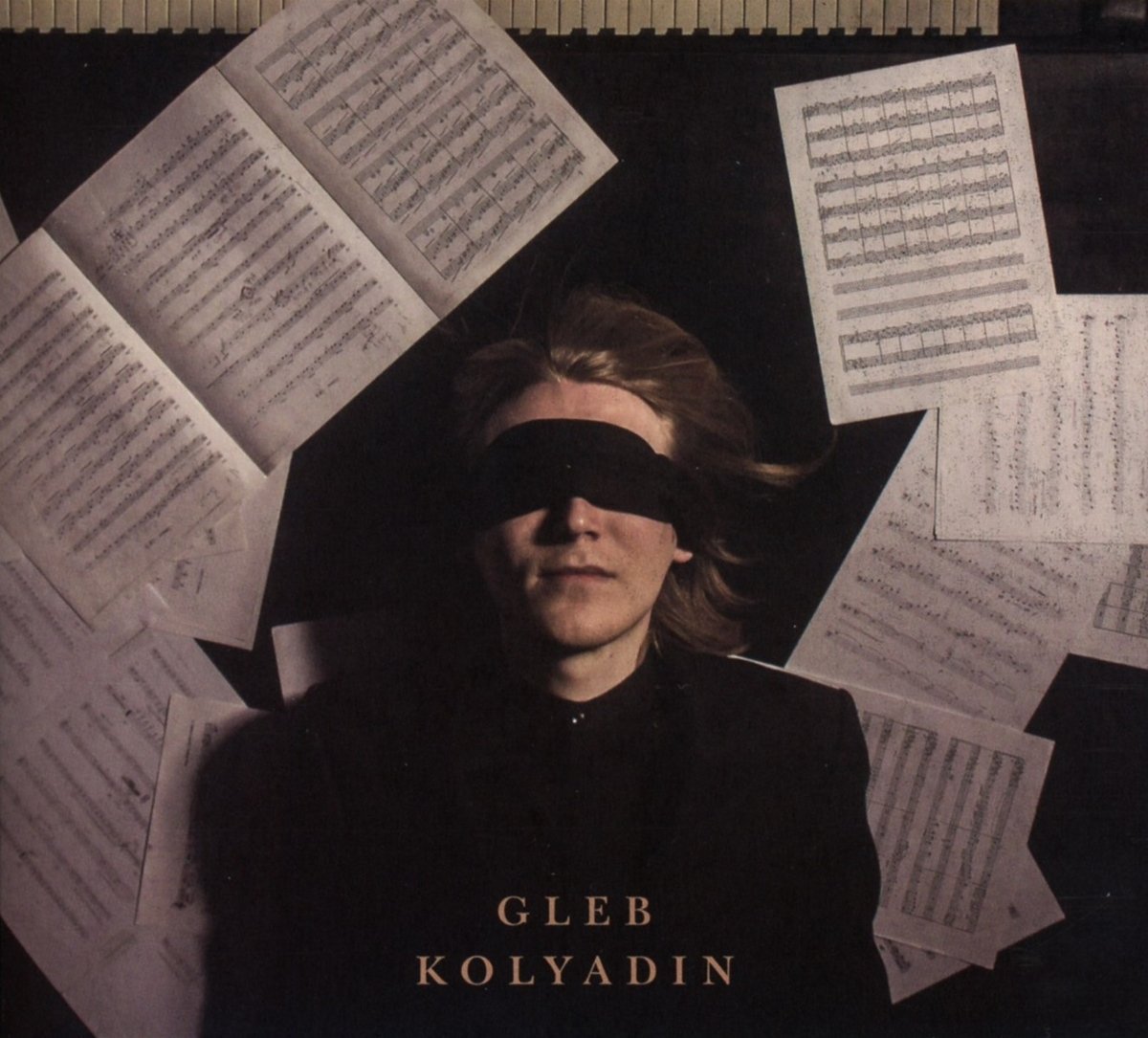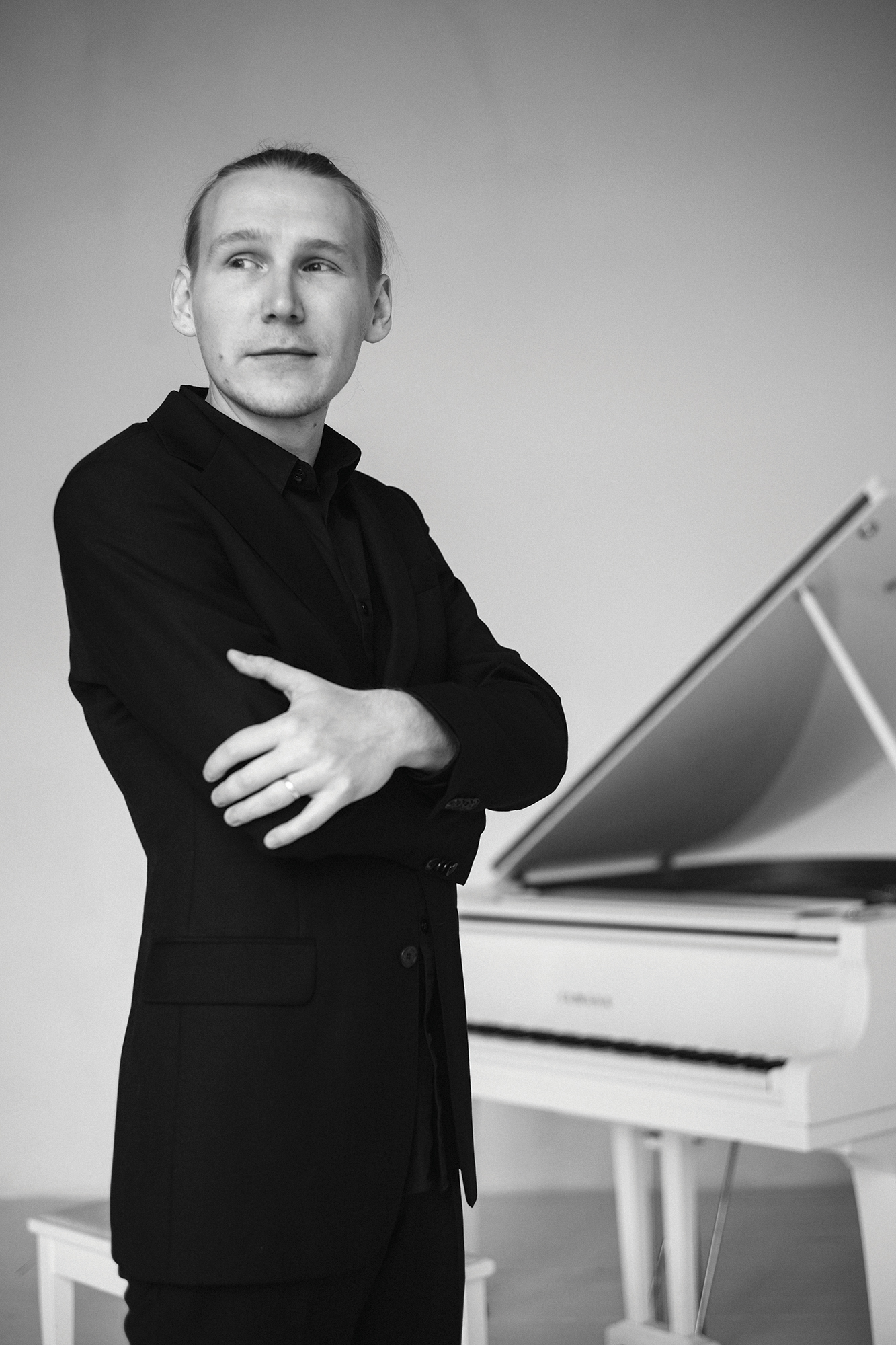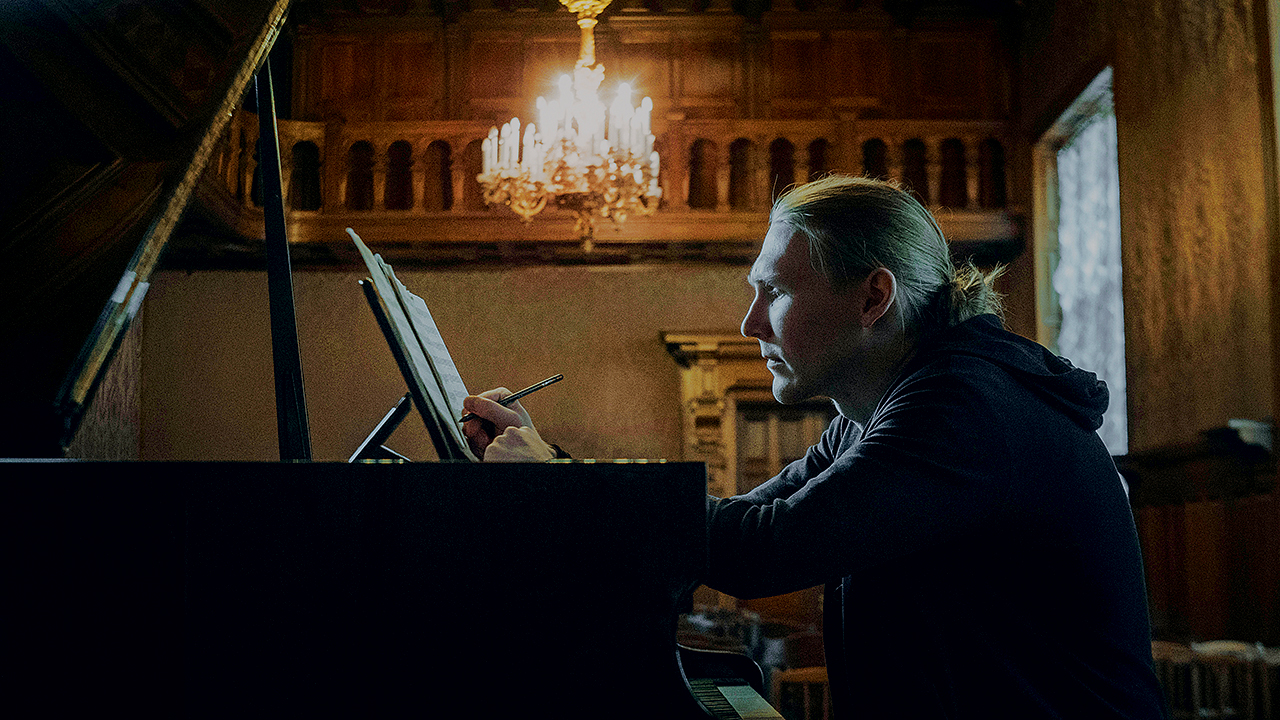It’s hard not to be shaken into a little bit of awe by the list of esteemed guest musicians on Gleb Kolyadin’s debut solo album. It’s almost a who’s who of modern-day prog, with Gavin Harrison and Nick Beggs underpinning things in the rhythm section, and Jordan Rudess, Steve Hogarth, Mick Moss and Theo Travis contributing cameos too.
Yet despite all the names in bright lights, it’s clear that Kolyadin is the true star on the self-titled record. It’s a jaw-dropping collection of largely instrumental salvos from the iamthemorning pianist, with a smorgasbord of styles present, from prog blow-outs and classical piano to fusion, minimalism and avant-garde. Quite simply, it’s probably one of the most exciting musical adventures you’re likely to go on this year.
It seems Gleb Kolyadin has been a long time coming for the virtuoso Russian. It was around seven years ago that the idea of branching out from prog duo iamthemorning first fizzed in his mind, but he ended up using his stockpile of ideas for the group’s award‑winning 2016 record Lighthouse instead of going it alone.
“Years after, I had so many more sketches that it felt embarrassing to go on accumulating them without using that material,” Kolyadin says. “If I set a goal to simply record all the old ideas in a good quality, I’d end up with enough material for another two or three albums. But I’d rather take a journey similar to what I’ve recently taken, to create a unique story rather than just a set of tracks. It was a very long and consequently hard process in terms of recording, but in terms of the writing, that goes much faster.”
Upping the prog credentials with unashamed gusto, the pianist says the record is based on a story of a “person dreaming of a non-existent house”, which is ultimately a projection of the inner self.
“While passing through twisted corridors and climbing up ladders, the character puts the scattered ideas together, reinvents them and comes to the holistic view of his own world,” Kolyadin says.

There’s certainly an interesting musical palette underneath to tell the tale. Astral Architecture sees Antimatter’s Mick Moss channel his best inner Eddie Vedder for an introspective yet rousing rally, Kaleidoscope is a flurry of finger-frenzy on the piano, and the 10-minute Confluence – which features Marillion’s Steve Hogarth – starts jazz bar before ending with some prog rock pomp.
Technically it’s as sharp as a knife, but the moments of virtuosity don’t feel overblown or superfluous – a sometimes tough balance to achieve – and you get the sense that the music comes from deep within.
“I think it’s important to attract listeners’ attention, but I never force that,” Kolyadin says. “I find it important to create an engaging story, an interesting dialogue rich in emotions and images. In this work I tried to unite the genres that I personally take interest in. And, in fact, the music I like is very diverse.”
Musically, Gleb Kolyadin uses a number of ethnic motifs, which the musician says “symbolise the mystique” of a human life. The track Strand, for example, is like a “look into the microcosmos, a world in miniature, and a kind of a cipher of each of us”.
Kolyadin explains: “I wasn’t trying to imitate anyone when composing this music but later on, to my surprise, I discovered fragments in my tracks that remind me of early Gong albums or some Steve Reich pieces. Apparently there’s no one particular influence –there’s just an accumulated ‘baggage’ of the music I had played or listened to that my brain just adds randomly in its own creative process.
“The only bit I made on purpose was some sound allusions to the universe of David Lynch. In one of the tracks [mixer and engineer] Vlad Avy played all his guitar parts end-to-beginning only to use them reversed on the record, similar to the Black Lodge in Twin Peaks. Remarkably, its season three was out after we’d finished all our work, but this movie turned surprisingly close in spirit to what I’ve been thinking the whole last year while working on the album.”
Koloydin grew up in Saint Petersburg, Russia’s second largest city after Moscow, and the country has cast a strong spell over his creativity and songwriting. The historical features of Russia and its deep-rooted musicality have – consciously or subconsciously – seeped into his psyche for much of his life.
“Since childhood I’ve had a very close connection to Russian folklore, with its melodiousness and feel,” he says. “Secondly, playing piano since childhood impacted me a lot. The piano school and its legacy is very honoured in Russia. I was lucky to have the teachers that I had. Having passed all the steps from a music school to conservatory, I’m strongly convinced that it’s the music school and my teachers that made me who I am now, not only in a professional way but in a human way too.
“I was born and I grew up in Saint Petersburg, a beautiful city that has a rich culture and turbulent history, where people like Dostoyevsky and Shostakovich lived. Sure enough, that kind of atmosphere influences both consciousness and creativity.”

Kolyadin formed iamthemorning back in 2010, joining up with singer Marjana Semkina to stirring effect. The ethereal duo worked with Porcupine Tree and King Crimson drummer Gavin Harrison on their second and third records, so perhaps it was only natural that the sticksman would be willing to help out Kolyadin on his solo album.
But the guests kept on coming, with Steven Wilson comrade Nick Beggs laying down all of the bass work, and the other cameo musicians quickly signing on too.
“I still can’t figure out how getting the guest appearances happened,” Kolyadin says. “I guess that thought was born two autumns ago when iamthemorning received the Album Of The Year Award from Prog. I was very inspired back then and I thought it would be nice to make an interesting collaboration for my own album. Vlad Avy supported the idea, so then I just messaged everyone I’d want to play with. All of a sudden, all these people agreed after listening to the material.”
The pianist, meanwhile, said getting the octopus-limbed Harrison on board was one of the most pivotal moments of the recording process as drums began to be laid down alongside the lead piano.
“He was the first to agree by replying the very same evening that he very much liked the material,” Kolyadin says. “That moment I understood that the album was really going to happen. He asked me to send him sheet notes for all the piano parts to polish his parts. That process helped me correct some mistakes and get the material ready for recording the piano. A couple of weeks later, Gavin recorded drums for all of the tracks in a row, one by one, and they were just perfect. The grand piano and the drums sounded fantastically homogeneous. That musician is a real pro.”
Kolyadin cites older prog as one of his main influences, particularly King Crimson’s Red era, along with Jethro Tull and Genesis.
“But at the same time I don’t mind listening to 10,000 Days by Tool or some of Brian Eno’s ambient albums,” he adds. “Actually, I’m pretty omnivorous as long as there’s magic and dynamics inside the music.”
But while prog adventurism runs through his veins, the Russian doesn’t like to be pigeonholed by the genre and instead sees himself as a someone with a veritable myriad of musical styles on his mind.
“I think this very album may really be identified as prog, but to be honest, I wouldn’t like to identify myself as a prog-only musician,” Kolyadin says. “I have a classical music degree and I like to play very different music, from classical to tango, minimalism and avant-garde. I even had an experience playing some electronic music. But my classical pianist background is prevailing in me. It’s one of the main sources of ideas.”
As the new year beds in, iamthemorning are working on new material, with Kolyadin having high hopes over the eventual finished product. But for now, the spotlight is all on the pianist. It appears the maestro is vindicated in his decision to go solo – even if there was some sweat and tears along the way.
“The work took a pretty long time, so I think I’ve gone through all the stages from a fanatic and neurotic involvement in it to utterly detesting everything that was going on,” Kolyadin admits. “But now that I listen to the album, I like the music, particularly as a listener. And that’s not a bad result, I think.”
This article originally appeared in issue 85 of Prog Magazine.

